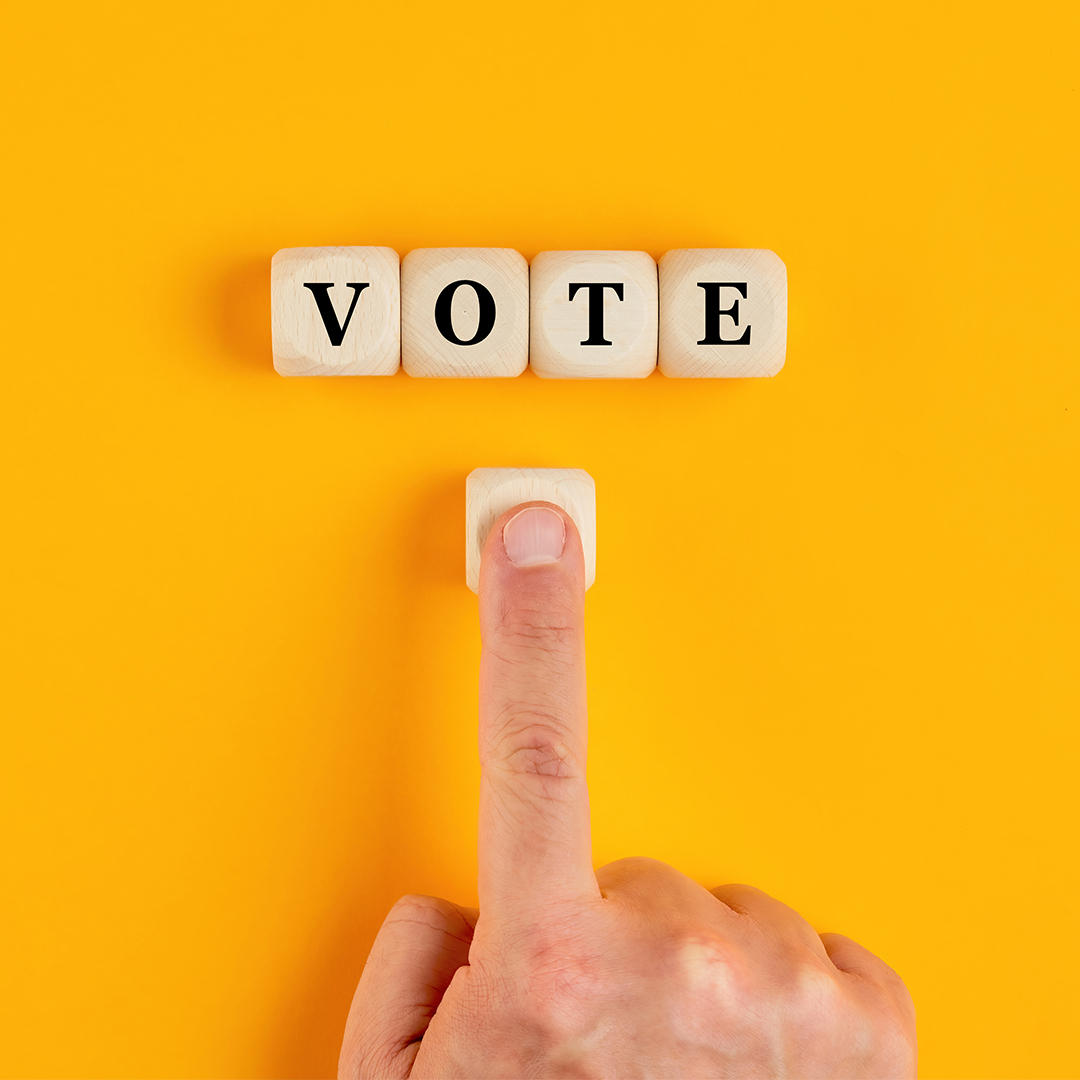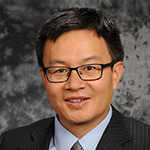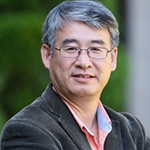 Voting open from September 1-29
Voting open from September 1-29
The 2023 election for ECS High-Temperature Energy, Materials, & Processes (H-TEMP) Division officers and members at large takes place via electronic proxy from September 1 through September 29.
We urge all ECS H-TEMP Division members to take part in this important election!
We have a great slate with two candidates for division treasurer. Their biographical sketches and statements follow along with voting instructions.
CANDIDATES
Dong Ding
Dong Ding is a Distinguished Staff Engineer/Scientist in the Directorate of Energy and Environmental Science & Technology at the Idaho National Laboratory (INL). As a Group Manager for the Chemical Processing Group, he leads more than 20 researchers studying electrochemical processing and electrocatalysis at elevated temperatures. He is a principal investigator for multiple projects, including direct-funded and lab-directed research and development. Dr. Ding is a technical lead and steering committee member for two hydrogen-related consortia: HydroGEN of Energy Materials Network (EMN) and H2NEW under the U.S. DOE-Energy Efficiency and Renewable Energy (EERE)-Hydrogen and Fuel Cell Technology Office. He holds joint/affiliated faculty positions at the University of Utah, University of Louisiana at Lafayette, University of South Carolina, New Mexico State University, and University of Idaho. Dr. Ding’s current research interests follow INL’s two mission initiatives: advanced design and manufacturing (ADM) and integrated energy systems (IES), including high-temperature water electrolysis, natural gas upgrading, advanced manufacturing of solid oxide cells/stacks, CO2 capture and conversion, ammonia electrosynthesis, fuel cells, and electrocatalysis.
Dr. Ding received his PhD in Material Science at the University of Science and Technology of China, where he also earned a BS in Materials Chemistry. In 2009-2010, he was a postdoctoral fellow at West Virginia University and the National Energy Technology Lab, and from 2010-2014, at the Georgia Institute of Technology. Before joining INL, Dr. Ding was Senior Materials Engineer at Redox Power Systems. The co-author of over 130 peer-reviewed publications and a book chapter, he also holds 11 US patents and 18 patent applications.
Dr. Ding is on the H-TEMP Division’s executive committee. He served as an editorial advisory board member for the Journal of Power Sources Advances, guest editor for RSC Materials Advances, Frontier in Materials, Frontier in Chemistry, Journal of Physics: Energy, and Journal of Materials Research. Dr. Ding received the 2022 Laboratory Director Exceptional Scientific Achievement Award, 2021 INL EES&T (Energy & Environment Science & Technology) Leadership Award, 2020 Asian American Most Promising Engineer of the Year Award, and 2019 FLC (Federal Laboratory Consortium) Far West Award in the category of Outstanding Technology Development.
Statement of Candidacy
I joined The Electrochemical Society seven years ago when I became a Principal Investigator at the Idaho National Laboratory. The ECS H-TEMP Division fostered my career growth and provided numerous opportunities to listen to bright ideas, engage in brainstorming discussions, and work with others. It has become my family where I have many sincere colleagues and friends. Since becoming a member at large in 2018, I have actively participated in every executive meeting and co-organized and chaired several H-TEMP symposia and sessions. For the past two years, I have also been a member of the H-TEMP division award subcommittee. I enjoy attending ECS biannual meetings and communicating online with H-TEMP members.
The H-TEMP division is playing an increasingly important role in decarbonizing our society by implementing current and next-generation high-temperature energy conversion technologies, where more options may emerge in high-temperature electrochemistry. Consequently, my goal as an officer is to strengthen collaboration with industries and academic institutes. The national laboratories could play a major part in connecting current networks. If elected Treasurer, I would bring to the steering committee my experience and leadership of HydroGEN and H2NEW, two hydrogen-related consortia wherein industry and universities participated with the national lab complex. I want to promote industry engagement by introducing more SOFC/SOEC developers, investors, and stakeholders to the division, and expand H-TEMP’s viability and reputation by increasing members, sponsorships, and awards.
Jianhua (Joshua) Tong
Jianhua (Joshua) Tong is Professor in the Department of Materials Science and Engineering at Clemson University, and Principal Investigator of the Sustainable Clean Energy Laboratory. Dr. Tong’s research focuses on the creation, synthesis, understanding, and engineering of energy materials (e.g., mixed oxides, conductive glasses, and nanocomposites) and the design, fabrication, demonstration, and modeling of energy devices (e.g., membrane reactors, fuel cells, electrolysis cells, solid state photoelectrochemical cells, thermochemical reactors, oxide catalysts, electrochemical sensors, solid state batteries, solid state supercapacitors, ionic memristors, and ionic transistors). Methodologies include machine learning, additive manufacturing (3D printing), laser processing, reactive sintering, electrochemical, polymer-derived, and additive-assisted synthesis. Applications are solar fuels production, sustainable ammonia synthesis, and natural gas to value-added chemicals; carbon dioxide capture/utilization, biomass conversion, electrochemical sensing, organic waste to energy, nuclear isotope separation, nanoionics, high-temperature memories, and bio-electrochemical materials.
Prof. Tong earned his PhD in 2002 from the Dalian Institute of Chemical Physics at the Chinese Academy of Science. Before joining Clemson in 2016, he worked in the sustainable clean energy field for many years at Japan’s Research Institute of Innovative Technology for the Earth, National Institute of Advanced Industrial Science and Technology at the University of Cincinnati, California Institute of Technology, and Colorado School of Mines. Dr. Tong has published over 100 peer-reviewed papers, eight book chapters, three special issues, and co-edited one book, filed 18 patents, and delivered over 140 presentations and seminars. His has over 7,500 citations with an h-index of 39 and i10-index of 73. He received the 2017 Ross Coffin Purdy Award from the American Ceramic Society.
Dr. Tong is currently an executive committee member of the ECS H-TEMP Division. As Editor of the Journal of Materials Science for two years, he handled more than 400 manuscripts. Since 2021, Dr. Tong has been an editorial board member of Communications Engineering (Nature portfolio). He was a co-organizer of Energy Materials for Sustainable Development at the 2022 Materials Science & Technology; co-organizer of I05—Electrosynthesis of Fuels 7 at the 242nd ECS Meeting; and lead organizer of I05—Advanced Manufacturing for High-Temperature Materials and Devices at the 240th ECS Meeting.
Statement of Candidacy
I have been a member of The Electrochemical Society since I attended the 221st ECS Meeting in Honolulu over 10 years ago. I became an executive member of the H-TEMP Division in 2019. Since then, I have actively contributed to organizing H-TEMP symposia—specifically, I established the Advanced Manufacturing for High-Temperature Materials Devices symposium. If I am elected as Treasurer of the ECS H-TEMP Division, I will work closely with other officers and executive members to expand collaborations with industry, academia, and national laboratories. I will help develop new symposia and attract and retain new Society and H-TEMP division members. I will support the H-TEMP division in promoting the broader spectrum of manufacturing high-temperature energy materials and devices by attracting more members, industry sponsorship, and international collaborators. I plan to establish an industry scholarship or award for advanced manufacturing to foster young scientists’ participation in the H-TEMP division. I also hope to strengthen ECS student chapters to emphasize H-TEMP division activities.
Voting instructions
Proceed to the electronic proxy ballot and follow these easy steps to cast your vote.
- Enter your ECS member number and password. Your member number is under MY ACCOUNT/ECS ID when you log on to the ECS website.
- After logging on, your electronic proxy ballot opens. Enter your vote for each office.
- If you have trouble logging on, contact ECS Customer Service.
- You can only vote once.
Thank you for participating in this important election!




